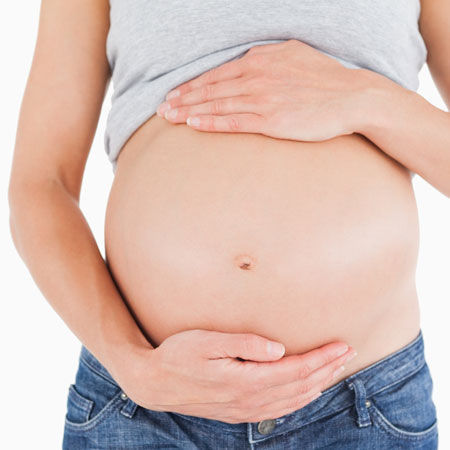Swedish Municipalities and Regions (SKR) believes that employers have difficulty assessing the risks associated with covid-19 for pregnant employees. Therefore, they are now asking for clearer recommendations from the authorities, Swedish Radio reports.
This lack of guidance means that there is a danger of evaluating the same type of situation in different ways. It also creates unnecessary anxiety among pregnant women and among the managers who will do the assessments, Caroline Olsson, SKR’s head of employer policy, tells Swedish Radio.
This requirement comes in a letter that SKR has now sent to the Swedish Work Environment Agency, the Swedish Public Health Agency and the National Council for Health and Welfare.
According to the National Board of Health and Welfare’s assessment from February, pregnant women should not be exposed to infection as of the 20th week of pregnancy because pregnant women who subsequently become infected with COVID-19 have a higher risk of preterm labor.
If there is a risk of injury, the employer should first of all try to change the methods of work and the content of work. If this is not possible, homework can be an option after an individual risk assessment.
If it is not possible to eliminate the risks or arrange homework, the employer can ban the work. The employee can then apply for a pregnancy benefit from the Swedish Social Insurance Agency.
Emily Holtberg, chair of the Working Life group at the Swedish Medical Association, agrees that it would be fine with more clarity on the issue.
– It would have been positive with some kind of clarification on how this relates, and that then it would allow for a more similar assessment in different areas and in different workplaces.
At the same time, she points out, it’s a complex situation for both unions and employers, and it’s hard to say exactly what such an illustration should look like, says Emily Holtberg.
It is difficult for managers who are responsible for the final work environment in this matter. I’ve come across many managers who want to do it well but who are themselves groping about it. Sometimes it is also difficult for our safety representatives to know what requirements to set.
According to Emily Holtberg, there are no problems with pregnant women who do not work with or suspect Covid patients. The challenge is, among other things, to assess risks and secure workplaces for patients and relatives who may have mild or no symptoms.
In many workplaces, there are very good routines for all patients who are admitted to be tested or screened for coronavirus. But the question is whether you can, for example, have a regular annual check-up at the health center as a pregnant doctor, even if you have protective equipment. It is complex and makes risk assessments very difficult.
Should one just say that homework is applied at week 20 or, if that’s not possible, block work?
– It was clear that it was obvious, but then comes the question: how do we deal with those who had time to vaccinate before they became pregnant? How do we deal with those who have been infected with the Covid-19 virus and have antibodies? We also have members who think it’s perfectly fine to continue working with protective gear. This is very difficult.
Emily Holtberg also points out that moving on to homework may have consequences for clinicians in education services.
– If you want to re-assign your homework, I know that in Västra Götaland there is a great demand and a great need for people who track infections. But it may not be possible to count them as working in AT. And if it is from week 20, it will be a long time.
Lakartidningen.se
(Updated 04-20-2021)

“Lifelong food practitioner. Zombie geek. Explorer. Reader. Subtly charming gamer. Entrepreneur. Devoted analyst.”









More Stories
Susan Boyle’s new album “The Gift” goes directly as an album in the United States and the United Kingdom
One direction with Swedish single -written
Abi Harmoni launches tickets for two exclusive parties in a competition in Stockholm!